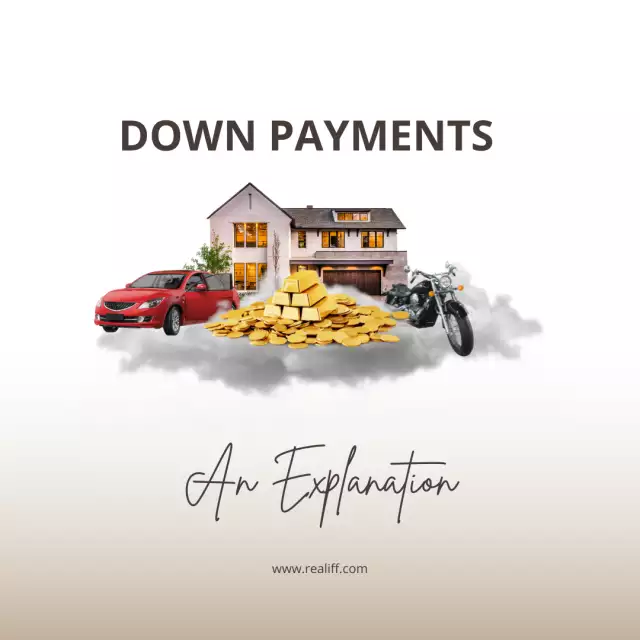Innovative Down Payment Strategies for Millennials
Introduction
Millennials face a challenging housing market, but their determination to own homes remains steadfast. As the pandemic fueled the home-buying trend, the down payment has become a critical factor in purchasing a house. The size of the down payment influences monthly mortgage payments and the likelihood of having an offer accepted. This comprehensive guide explores the top ways millennial homebuyers can finance their down payments, offering valuable insights into each method.
Savings: A Traditional Approach
One of the most popular methods millennials use to save for a down payment is traditional savings. Setting aside money in a regular cash account for daily transactions or opting for a high-yield savings account for better interest rates are common strategies. Additionally, investments in stocks, bonds, and other assets can appreciate over time and be converted to cash when needed for a home purchase.
High-Yield Savings Accounts
High-yield savings accounts offer higher interest rates compared to regular savings accounts. These accounts can significantly boost savings over time, making them a popular choice for millennials looking to maximize their savings potential. By consistently contributing to a high-yield account, future homeowners can watch their funds grow faster, bringing them closer to their down payment goals.
Investment Accounts
Stocks, bonds, and mutual funds provide millennials with opportunities to grow their money over time. While these investments carry risks, they can offer higher returns compared to traditional savings accounts. Millennials with a higher risk tolerance may find investment accounts to be a beneficial way to save for a down payment, potentially accelerating their path to homeownership.
Crypto Holdings: A Modern Twist
Cryptocurrencies such as Bitcoin and Ethereum present an opportunity for millennials to raise capital quickly. Although the values of cryptocurrencies can fluctuate drastically, those who have seen their crypto holdings grow might consider converting them into real estate to capitalize on the gains. However, converting crypto into cash can trigger a taxable event, so consulting with an accountant is advisable.
Potential and Risks of Crypto
The potential for high returns on crypto investments appeals to many millennials. However, the volatility and regulatory uncertainties associated with cryptocurrencies make it crucial for investors to approach this option cautiously. Consulting with financial professionals can help navigate the complexities of using crypto for down payments, ensuring that the benefits outweigh the risks.

Gifts from Family Members: A Helping Hand
The rising demand for housing and increasing prices have led many millennials to seek financial help from parents to fund a down payment or cover closing costs. Gift money is usually transferred in one lump sum, and there may be gift tax implications, so consulting with an accountant is recommended. Lenders typically require documentation of the fund transfer and a gift letter.
Gift Letters
A gift letter is a document that confirms the money given is a gift and not a loan that needs to be repaid. Lenders require this documentation to ensure the funds are indeed a gift and to verify the financial stability of the buyer. This step is crucial for the loan approval process, helping to streamline the purchase and avoid potential delays.

Existing Home Equity: Leveraging Assets
Millennials who already own a home, whether through purchase or inheritance, can access home equity as a source of funding for a down payment. This can be achieved by selling the current home to take advantage of the equity or by taking out a home equity loan or line of credit. Consulting with a mortgage lender is essential to understand how to use existing home equity effectively.
Home Equity Loans and Lines of Credit
Home equity loans and lines of credit allow homeowners to borrow against the equity in their homes. These financial products can provide substantial funds for a down payment, though they come with their own terms and interest rates that must be carefully considered. Understanding the implications and costs associated with these options is crucial for making informed decisions.
Borrowing from Retirement Savings: A Last Resort
Borrowing from a 401(k) is another option for funding a down payment, but there are early withdrawal penalties and taxes to consider. Mortgage lenders generally allow buyers to pull money from retirement plans to fund a down payment, but it's important to understand the potential impact on long-term retirement savings.
401(k) Loans
A 401(k) loan allows you to borrow money from your retirement account without incurring penalties, as long as the loan is repaid according to the plan's terms. However, it's important to weigh the potential impact on your retirement savings and the cost of borrowing. This option should be considered carefully, especially if the repayment terms are stringent.
IRA Withdrawals
First-time homebuyers can withdraw up to $10,000 from their IRA without paying the 10% early withdrawal penalty. This can be an attractive option, but it’s crucial to understand the tax implications and potential impact on long-term retirement savings. Consulting with a financial advisor can help determine if this strategy aligns with your overall financial goals.
Tax Implications and Costs
It's important to note that there may be tax implications and other costs associated with the aforementioned sources of down payment. Consulting with a mortgage lender or accountant for guidance can help navigate these complexities and ensure that buyers make informed decisions. Understanding the full financial picture is essential for avoiding unexpected expenses.
Consulting Professionals
Working with financial advisors, accountants, and mortgage lenders can provide valuable insights and help buyers avoid costly mistakes. Professional guidance ensures that all aspects of funding a down payment are thoroughly considered. These experts can offer personalized advice tailored to your unique financial situation, helping you make the best choices for your future.
News About Millennials and Down Payments
Recent reports indicate that millennials are increasingly turning to diverse methods to fund their down payments. With the rising cost of real estate, innovative approaches such as leveraging cryptocurrency gains and seeking family support are becoming more common. Financial experts emphasize the importance of understanding the implications of each funding method to make the best decisions for long-term financial health.
Expert Quote
"Millennials are redefining homebuying by utilizing various financial strategies to fund their down payments. Understanding the benefits and risks of each method is crucial for making informed decisions that align with long-term financial goals." - Jane Smith, Real Estate Financial Advisor
The Most Comprehensive Tips for All Aspects of Funding Down Payments
Maintain a Professional Image
Present yourself professionally when negotiating down payments. Demonstrating financial stability and preparedness can strengthen your position with lenders.
Utilize Technology
Use online platforms and tools to compare financial products, track savings, and monitor investments. Technology can provide valuable insights and streamline the process of saving for a down payment.
Network Effectively
Connect with real estate agents, financial advisors, and other professionals who can provide guidance and support throughout the home-buying process.
Stay Informed
Keep up with trends in real estate and financial markets. Staying informed about changes in interest rates, property values, and financial products can help you make better decisions.
Create a Business Plan
Develop a strategic plan for saving and investing towards your down payment. Setting clear goals and timelines can help you stay on track and reach your objectives.
Choose the Right Brokerage
Select a brokerage known for offering competitive financial products and support. Working with the right brokerage can provide access to valuable resources and expertise.
Work with a Mentor
Seek advice from experienced homebuyers or financial mentors who have successfully navigated the process. Learning from their experiences can provide valuable insights and avoid common pitfalls.
Specialize
Focus on specific financial products or strategies that align with your goals. Specializing can help you become more knowledgeable and make more informed decisions.
Prepare for Slow Months
Plan your home purchase during times when the market may be slower. Taking advantage of market conditions can help you negotiate better deals and maximize your savings.
Learn from Rejection
If an agent or lender refuses to offer favorable terms, learn from the experience and use it to improve your approach. Persistence and adaptability are key to success in the home-buying process.

Conclusion
There are multiple ways for millennials to fund their down payment, from traditional savings to crypto holdings, gifts from family members, existing home equity, and borrowing from retirement savings. Aspiring buyers should consider their options carefully and consult a mortgage lender or accountant for guidance. By exploring various funding methods, millennials can find the most suitable approach to achieve their homeownership goals.









